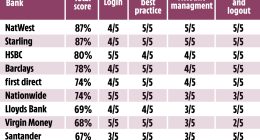October 9, 2020 5 min read
Opinions expressed by Entrepreneur contributors are their own.
How quickly do you adapt to change at work? Are you skilled at cultivating connection with a remote team? What are your tools for noting racism and fostering diversity while building connection and belonging at work? These self-assessments are indicators of emotional intelligence, or EQ, and come into play every day you’re engaged with others. Every organization achieves its goals through a series of daily conversations, interactions and decisions. These necessarily involve humans, and the more emotionally intelligent we are, the more effective we will be on every level.
Take, for example, the EQ competency of exercising emotional self-control. During the times you have impulsive or distressed feelings at work, how often do you manage them in a way that’s not disruptive to others? If you have witnessed yourself or a colleague in the clutches of that emotional choice-making, you have experienced emotional intelligence. If you have been part of the fallout of a disruptive display, you’ve witnessed a moment of low EQ.
Related: Want Influence? Use Intelligent Curiosity
Coined by Daniel Goleman, the term emotional intelligence, or EQ, can be likened to traditional intelligence or IQ, except EQ is about how smart we are with our human connections — in other words, how effectively we manage ourselves and our relationships. Goleman’s research launched a new movement in the world of business and management. Developing EQ works because it increases understanding of others and builds positive relationships both internally throughout workplace functions and externally in business. This leads to more effective results in everything from communication to better business deals.
Emotional intelligence defined
You can spot emotional intelligence in four components. To recognize what those are experientially, take a moment to think about your colleagues. Based on your interactions with them over time, what would you identify as their top two values? You want to make an educated guess here, based on all the information you have. Consider your own values as well. Now consider the following definitions.

- How well do you know yourself? Self-awareness focuses on how well you know yourself, including your values, strengths and weaknesses, in comparison to how others perceive you.
- How well do you adapt well to new information? Self-control is about managing your emotions and actions in productive and healthy ways.
- What’s your style of managing conflict? Building relationships deals with how we use our awareness of others to maximize their potential and our relationship.
- Do you know how empathy feels? Awareness of others means knowing their emotions and needs, as well as their skills, preferences and other aspects of diversity. It’s also about extending empathy.
Within these four components are 20 competencies, such as appreciating self-awareness, diversity, adaptability and inspirational leadership. As you can see, the more you gain a detailed awareness about how the people around you work, the better you can engage together in clear communication, effective goal-setting and managing conflict into opportunity.
There’s an insider’s trick on this: The more you cultivate EQ in yourself, the more easily you can spot it in others. As you delve into knowing yourself, it becomes much easier to correctly read and identify similar qualities in others, like their emotions, values, skills and workstyle.
Related: 5 Reasons Why Emotional Intelligence Is the Future of Work
Practice understanding each other at work
Once you have considered your colleagues’ top values (and yours) and taken those values through the components of EQ, you can verify your guesses by asking. You can say something like, “I have been reflecting a lot on my own values and am interested in learning more about yours. What are your top values and why?”
Of course, you want to choose a time and place that’s conducive to this topic, but you’d be surprised how open people will be, when given the chance.
The best strategy for getting to know others is to ask them. While you can certainly base a lot on your observations, you always want to verify your impressions with confirmation from that person. These conversations not only give you data, but they also help build rapport.
The truth is that emotional intelligence is more about effort than innate skill. So take time to reflect on what you know about others, gathering and verifying information as you go. As you develop your understanding of the people in your life, you’ll gain more and more insight, which leads to many other measures of success. And as you increase your EQ in these workplace conversations, others’ understanding of you will grow, too.
How is your skill at catalyzing change? Developing others? With recognition and practice, relational and personal competencies begin to build on each other. Engage yourself and others in the work of EQ, then watch it proliferate around you.
This article is from Entrepreneur.com








